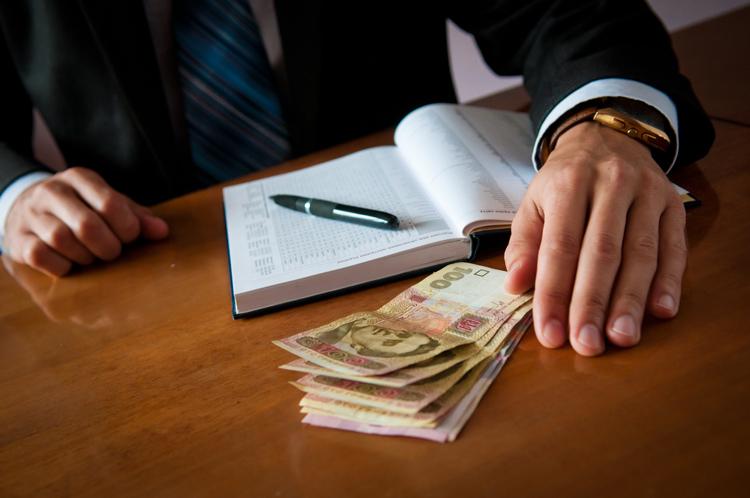KYIV, Ukraine—According to the Ukrainian tax agency, some $21.26 billion in salaries annually are paid under the table in cash—so-called “envelope salaries”—accounting for almost half of the country’s shadow economy. The Ukrainian government has been looking for ways to capture the lost taxes for many years, but has never succeeded.
Prime Minister Mykola Azarov recently stated that out of 20.5 million employable Ukrainians, almost 6 million—about 29 percent—are working unofficially.
If envelope salaries were normalized, the state would earn an additional $11 billion to $12 billion annually, or about 7 percent of the country’s GDP, according to calculations based on available figures.
Roman (last name withheld), 22, works as a messenger with a tourist firm in Kyiv, the capital city. In his company, all 25 employees get backdoor salaries.
“Getting an envelope salary is not a problem for me, it’s a problem for the state,” says Roman. He says the arrangement does not affect his relations with boss, and he has guaranteed vacation days, the same as any official worker. Every month, he receives $400 in cash—a little more than the average salary in Ukraine.
“As for a pension, I don’t think about it now, but officially, I do work,” he says. His official salary, $62 per month, is about half the legal minimum wage, which means that on paper he works part time.
If Roman were to receive this salary his entire life, his pension would amount to $53 a month—barely one-third the official cost of living.
The government is keen to stop the epidemic of the envelope salaries. One approach being talked about is laying criminal charges on those engaged in the practice, as Deputy Chief of the National Security and Defense Council Nestor Shufrych stated in a recent television interview.
On the more proactive side, Vice Prime Minister of Social Policy Serhiy Tihipko, believes that to deal with the problem, the investment climate must be improved and the human resources market needs to become more flexible.
Tihipko says the government has already taken measures toward this end: the number of separate taxes that have to be paid has already been reduced from 42 to 23 and will soon drop to 9; and the social benefit system has been united so business owners only have to pay once, rather than to each agency separately.
However, this united social payment is exactly the headache that makes entrepreneurs want to hide their cash flow, says Oksana Prodan, head of the All-Ukrainian Association of Small- and Medium-sized Business, or Fortress.
This payment ranges from 32.6 percent of paid salaries to 49.7 percent, depending on the type of work. At times, the sum can exceed 60 percent. As a result, many employers, especially from small- and medium-sized businesses, avoid paying taxes to leave them enough money to live on and to reinvest in business development.
Prodan says, only if this fiscal pressure is reduced, can under-the-table dealings be legalized. She thinks that repressive mechanisms proposed by authorities would only leave people without work and without money.
“As for the declarations and actions of our authorities, they are not consistent because their declarations do not conform to their motives. They declare support for competition and fair conditions, but they make decisions that destroy independent business,” says Prodan.
While Ukrainian activists lobby for improved laws for businesses, and the authorities claim they are taking necessary measures for improving the business climate, Ukraine consistently remains on the outskirts of the World Bank sponsored Doing Business rating.
In the 2012 ease of doing business index, Ukraine was ranked 152 out of 183 economies examined. In the category of tax payment complexity, Ukraine ranked 181 (behind only the Republic of Congo and Venezuela).
The Epoch Times publishes in 35 countries and in 19 languages. Subscribe to our e-newsletter.






